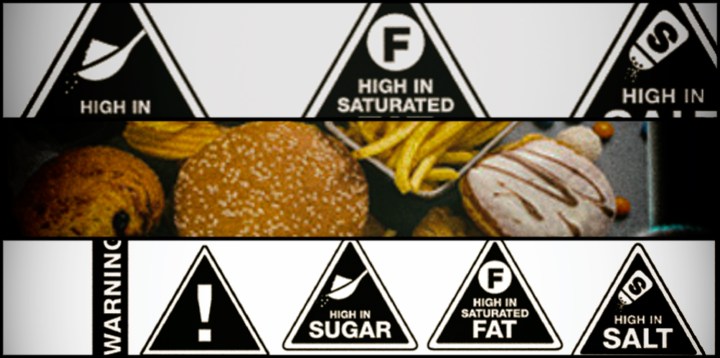
NUTRITION OP-ED
Help protect your fellow South Africans against predatory food practices

The National Department of Health has released front-of-pack warning label regulations for public comment. South Africans need to participate in the process to ensure that we are all protected from profit-driven corporate activities promoting harmful goods and unhealthy food.
Growing up in the Eastern Cape, I remember eating foods prepared from start to finish in our home kitchen. Boarding school introduced me to packaged foods. And university introduced me to fast food.
But I would never have imagined that this change was seeping into the food environment, with ultra-processed foods becoming the norm.
It is no wonder that the explosion in obesity rates and the rise in noncommunicable diseases in the Global South coincided with the proliferation of fast, convenient food.
Research shows that two in five women and one in nine men in South Africa are obese. Children don’t fare any better. The South African National Health and Nutrition Examination Survey found that South African children between the ages of 6-14 years have a combined overweight and obesity prevalence of 13.5%.
The idea is that we are being sold convenience and affordability. Little is said about the negatives: the rising rates of diabetes, heart disease and cancers.
To make them cheaper and more profitable, many of the ultra-processed foods we eat are loaded with additives such as sugars, salts and trans fats which wreak havoc on our bodies and put us at risk of preventable premature death, while we are armed with little more than impossible to understand back-of-pack nutrition labels.
To curb the ballooning burden of noncommunicable diseases, the World Health Organization recommends the implementation of evidence-based government-led strategies and policies to improve the food system and diet in the population.
One of these strategies is the use of stronger food regulations such as front-of-pack warning labels that are visible and consumers can understand at a glance. A deluge of research has found that large warning labels with a contrasted background for better noticeability, and the use of “excess” instead of “high in”, improve understanding of the nutritional content found in certain foods, leading to a change in people’s food-making choices for the better.
Fresh regulations
The National Department of Health has released front-of-pack warning label (FOPWL) regulations for public comment. South Africans need to participate in the process to ensure that we are all protected from profit-driven corporate activities promoting harmful goods and unhealthy food.
The newly published FOPWL and marketing draft regulation, R3337, will make it easier for all South African consumers to have clear information about the food we consume, empowering us to make better food choices. The regulations will also make it harder for major food organisations to market to children, who are vulnerable to the food industry’s predatory marketing practices.
Of course, the food industry could take a page out of big sugar’s playbook to block or water down the regulations, citing the cost to the economy caused by the implementation of front-of-pack warning labels and other effective public health policies. At the end of last year, the sugar industry used this tactic to bolster its calls for the scrapping of the Health Promotion Levy, a government policy aimed at reducing the consumption of sugar-sweetened beverages, which have been shown to have a negative effect on consumers’ health.
The tactic, used against a population suffering from hunger and poverty, is a low blow. The reality is that people should not have to choose between filling their stomachs in the short term and irreparably damaging their health in the long term.
We know that unless the food and beverage industry is forced to change, it is unlikely to. Experts from Priceless SA at the University of Witwatersrand School of Public Health found there is no evidence that voluntary actions by the food and beverage industry can safeguard public health. In fact, voluntary actions can delay the implementation of lifesaving interventions. Mandatory regulatory interventions are easier to monitor than self-regulation.
Contrary to the food and beverage industry’s claims about the cost to the economy, the costs of diseases such as diabetes, heart disease and some cancers are impossible to ignore. Disease itself has a cost, and for many South Africans, the cost of paying for healthcare and the inability to work due to illness takes food out of their mouths.
Researchers at Wits University crunched the numbers and found that “overweight and obesity are costing South Africa’s health system R33-billion a year”.
It is condescending to assume that poor people do not care about the quality of the food they eat. Researchers found that parents were more than keen to choose better food for their families, particularly if there was a sick person at home. What they needed was easy-to-understand information on which to base those choices, as outlined earlier.
It is true that warning labels alone won’t fix the entire problem of a profit-driven food environment, but it is a step in the right direction. Failure to act will result in more deaths and increased suffering.
We need your voice to ensure that the new front-of-pack warning label regulations are passed. Use this link to ask the National Department of Health to listen to YOU and pass the regulations. DM
Zukiswa Zimela is the communications manager at the Healthy Living Alliance (HEALA).



















 Become an Insider
Become an Insider
Comments - Please login in order to comment.